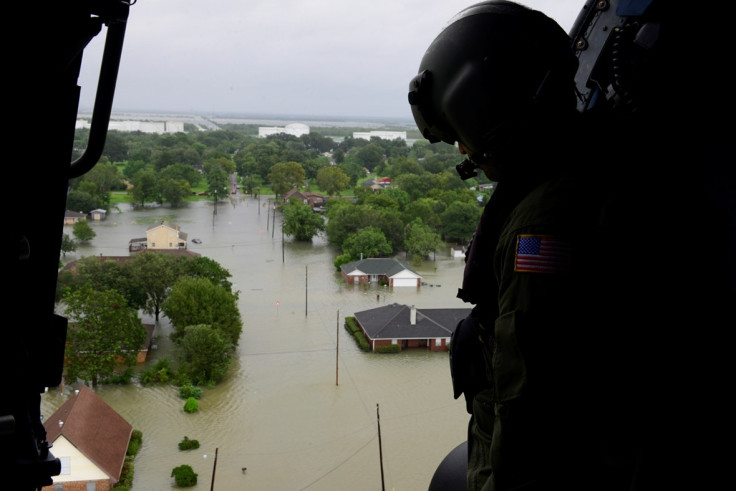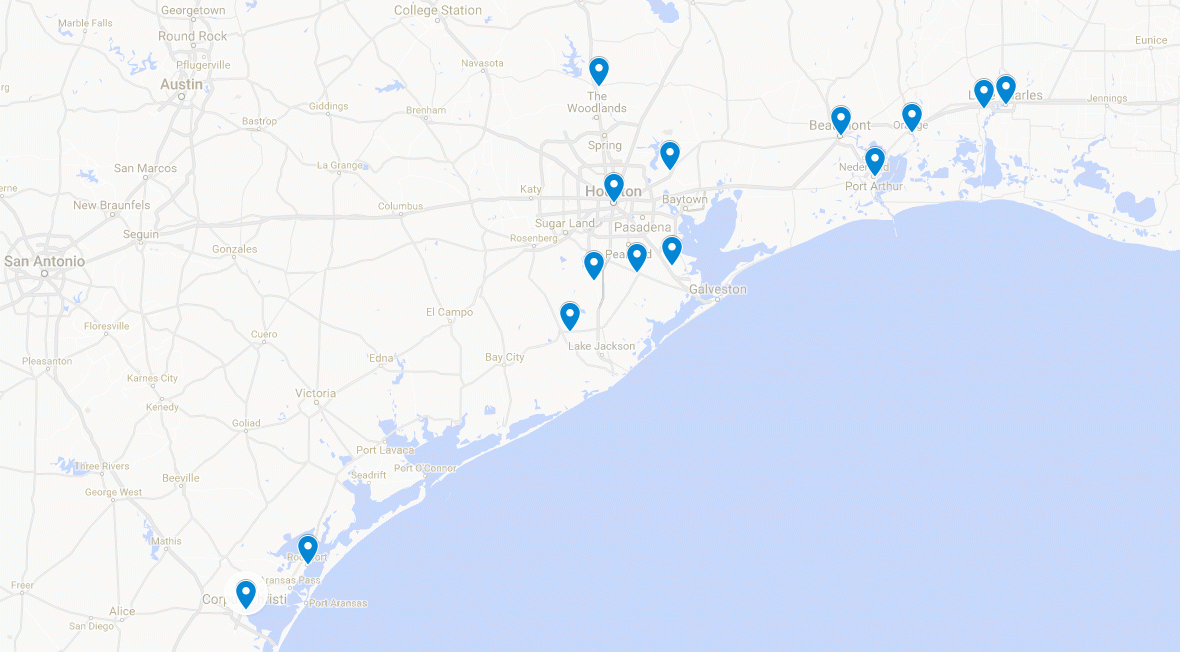US authorities brace for wave of storm Harvey-related fraud
Officials anticipate high magnitude of fraudulent claims and fake charity websites in Harvey's wake.
As high water spreads from Houston through Texas and Louisiana, US authorities are bracing for an inevitable wave of fraud and other criminal activity set into motion by storm Harvey's punishing rains.
In a warning to those who would seek to defraud the government and people wanting to help or seeking assistance, a dozen federal and state agencies were banding together to investigate and prosecute wrongdoers.
Federal and state officials are warning residents, volunteers and officials in flood zones in Texas and Louisiana they could be targeted by storm-related scams, contract corruption, document fraud, identify theft and other crimes.
They emphasise that the easy availability of personal information and documents on the internet has widened criminal activities and potential victims to anywhere in the US.
"Protect yourself and your wallet from unscrupulous operators," warned a new flyer by the Texas attorney general, whose office had received nearly 700 complaints by late Wednesday. Most alleged price gouging but a few reported fraud, said Kayleigh Lovvorn, a spokeswoman for Texas Attorney General Ken Paxton.
A disaster-related task force headed by Justice Department officials and other authorities has operated since Hurricane Katrina in 2005. It has arrested and prosecuted defendants for disaster-related crimes, including more than 1,460 in connection with crimes associated with Hurricanes Katrina and Rita.
Those prosecutions, between 2005 and 2011, targeted defendants in 49 federal districts across the country — a clear indication that criminal activities spawned by Harvey could originate anywhere.
"We recognise that much of the fraud may occur in areas far removed from the disaster," said Corey R. Amundson, the acting US attorney for the Middle District of Louisiana. Amundson is also the executive director of the National Center for Disaster Fraud, the Baton Rouge-based federal task force.
In a sign of the magnitude of fraud anticipated in Harvey's wake, federal and state law enforcement officials formed a working group to investigate and prosecute illegal activity stemming from the hurricane.
High magnitude of fraud anticipated in Harvey's wake
Houston-based Acting US Attorney Abe Martinez said storm victims had already suffered devastation and "the last thing that victims of the damage need is to be victimised again." The relationship, if any, between the new working group and the existing task force wasn't clear.
After Katrina, many of the task force's early criminal prosecutions targeted those accused of fraudulently obtaining emergency assistance funds intended to help storm and flood victims. The unit's scrutiny broadened to people and companies that filed fraudulent home repair and disaster loan applications and also to contract and kickback schemes involving corrupt public officials.

Among officials investigated by the task force were Benjamin L. Edwards Sr., a former New Orleans city sewerage director who pleaded guilty in 2010 to wire fraud and tax evasion for soliciting more than $750,000 in payoffs from hurricane cleanup contractors — and Gregory Brent Warr, the former mayor of Gulfport, Mississippi, who admitted guilt in 2009 for improperly receiving federal disaster funds.
The US Government Accountability Office criticised the Federal Emergency Management Agency and other federal agencies for loose scrutiny of disaster relief and recovery spending after Katrina. Walt Green, a Baton Rouge lawyer and former US attorney in Baton Rouge, said FEMA and other federal agencies have tightened oversight during recent disasters, but are still overrun after each new disaster with fraudulent addresses, personal information and other spurious documentation.
"Identify fraud is the newest angle," said Green. "You can find long lists of social security numbers of the dark web and people are purchasing them to use after disasters."
Green, who led the federal disaster task force between 2013 and last March, said some criminal activity likely spiked even before Harvey's landfall last week. Green said hurricane-related internet addresses — often with wording stressing storm charity and relief — are quickly purchased in the hours before a hurricane's landfall. Some web addresses later surface in charity scams that bilk unsuspecting donors or lure viewers to virus-infected sites.
"Without a doubt, charity fraud is going on right now," Green said.
Charity domains for sale on eBay
On Wednesday, the government-funded Multi-State Information Sharing & Analysis Center reported more than 500 domain names associated with Harvey had been registered over the preceding week. The majority of those names, the center reported, used words associated with philanthropy and aid, including "help," ''relief," ''donate" and "victims."
The center warned of "the potential for misinformation" and that "malicious actors are also using social media to post false information or links to malicious websites."

Four domain names referencing Harvey and the words "relief," ''fund" and "recovery" were listed for auction on eBay.com earlier this week, starting at $5,000 each. James Streigel, a northern California man who acknowledged offering them for sale, said he had no malicious intent and intended to sell them to the highest bidder.
Streigel said his listings also carried notices saying he would donate 20 percent of his earnings to the American Red Cross. He acknowledged to The Associated Press that he had no way of preventing prospective buyers from using the domain names for criminal activity. "We can't be sure of anything these days," Streigel said.
Hours later, an eBay spokesman, Ryan Moore, said the listings had been removed from eBay's site. "We've issued a warning to this seller that these listings violate eBay policy," Moore said.
The site's "offensive material policy" prohibits listings that "attempt to profit from human tragedy or suffering, or that are insensitive to victims of such events."
© Copyright IBTimes 2025. All rights reserved.





















